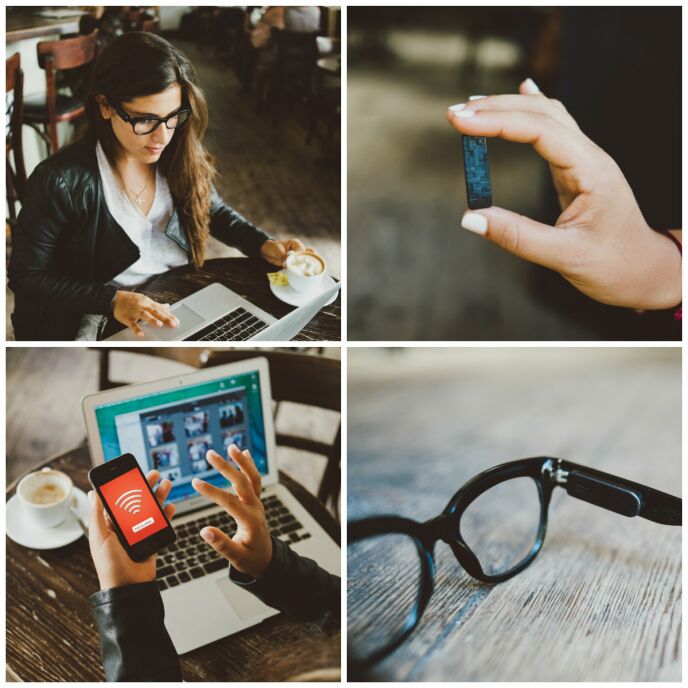Dafna Ariely, a former social scientist and deputy mayor in Israel, has misplaced her glasses so many times that she’s launched a startup she hopes will put a stop to it. The grandmother of five has turned to crowdfunding to get her wearable technology on the market.
It’s called Look and it’s a small, Bluetooth tracking device that attaches to the arm of most eyeglasses and uses an app (iOS or Android) to locate your missing spectacles quickly.
“The idea for Look came about when I couldn’t find my own reading glasses,” said Ariely. “I looked for hours. The next day, I found them between the couch cushions. After all the time I spent and the long, frustrating experience of searching, I thought that if I had something to help me find my glasses, I could have avoided all the pressure and loss of time I experienced. When I didn’t find a product like this on the market, I decided to do it myself.”
Ariely hopes to raise $50,000 in 60 days.
She’s not the only Israeli inventor seeking support from a social community of strangers.
Just because electronic music composer Offer Green has lost all control of his muscles doesn’t mean he has to stop creating music. A music fan from a young age, Green’s life changed at the age of 14 when he was diagnosed with Machado-Joseph disease, an incurable neurological disorder similar to ALS.
Green communicates via a sophisticated system that tracks his eye movements and converts them to mouse positions on the computer screen. His dream is to continue composing electronic techo beats for others to dance to, but the system isn’t sensitive enough for making techno music.
His friends, family and music teachers kicked off a crowdfunding campaign to raise enough money to create a set of software tools that “will allow him, and other disabled musicians around the globe, to tune knobs and sliders, to play, record and create music,” they write on the Indiegogo campaign site.
“Once we design the tools we will open the code’s source so other disabled musicians can use it to create their music.”
From the makers of Foldylock, comes their newest patent protected product known as Seatylock. It’s a revolutionary bicycle saddle that can transform into a one meter solid lock.
The team recently launched a Kickstarter campaign to raise $40,000 and help “change the lives of urban cyclists by providing them with a new level of convenience for secure bicycle locking.”
Meanwhile, electrical engineering student Maayan Goren is running an Indiegogo campaign for bleep — a smart charging cable that backs up smartphone data. The Tel Aviv University student has already surpassed his initial $20,000 goal and is now looking to match stretch goals.
The bleep plug-and-play cable comes with built-in storage and works with a free mobile app to store phone data automatically. It backs up and saves all data – including contacts, photos, videos – as soon as it’s plugged in to charge.
“For most of us, backing up our smartphone is a mystery. I realized smartphone users are divided into two groups of people: Those who know how to back up their phones, and those who know someone else that does,” Goren writes on his campaign page.
“The design and functionality of our standard chargers haven’t changed for years. While phones became smartphones, chargers remained ‘just’ chargers. I’ve decided to change that, and that’s how I came up with bleep.”
The prototype of the bright green cable has been featured on technology sites including Geeky Gadgets, GeekTime, ubergizmo and TechRepublic.
It could become the next Consumer Physics or Pressy success story of an Israeli startup in the crowdfunding realm.














